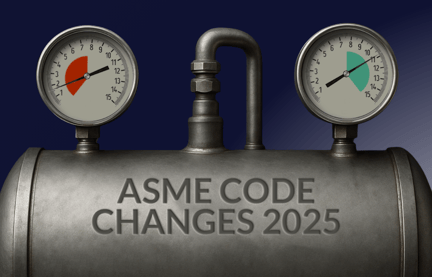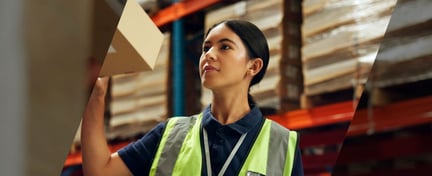For the food supply chain, the big challenge today is how to restore trust when so many people are involved with differing ethical and regulatory approaches in so many places.
Can technology improve traceability?
Traceability is one of the main issues facing the industry. If we put ourselves in the position of a high-end restaurant, how much reassurance do they currently have about the 'chain of custody' in their own supply chain, from source to kitchen?
One solution we're exploring is blockchain technology. As a decentralised register, blockchain works for two reasons: the data is transparent and unchangeable. As people add to the ledger we can see who added what, where and when they added it, with confidence that the information can never be manipulated. David Butler, Innovation & Technology Director for Business Assurance & Inspection Services, explains how his team are working with industry and academic partners to explore technology: "We're currently working to apply a number of different technologies to each part of the supply chain, with blockchain being the right technology to act as an intermediary to establish trust between all parties."
"Often food supplies come from developing countries where technology isn't easily accessible. Along the way it mixes through market points where tracking is difficult. And the industry margins are low so any extra requirements can have a big impact on suppliers' livelihoods. We're working with the MSC and others to balance the need for trust and safety with the commercial realities – reassuring people that these new steps can be introduced without being a threat to the supply chain."
Trust is the bedrock of the global food supply chain. We want to know that the food we’re eating is safe, environmentally and ethically responsible.

What are the applications beyond food supplies?
It's not just the food sector where this kind of solution is being explored. We are also exploring ways to share the learnings and take the solutions to other industries: "Our approach is to be industry agnostic. Our innovation teams are working with a number of industries, including Oil and Gas, to co-create new ways to improve trust and transparency."
One example is looking at log-book systems. The Oil and Gas industry is built on complex, high-value equipment and machinery which is often rented or resold during its lifetime. Blockchain can help make sure that businesses can trust the provenance and history of the equipment they're paying for. "If you introduce blockchain it's like a new version of an MOT logbook for a car. Users can be sure of the history of their machinery and that all maintenance has definitely happened at the right time."
Working in an open and collaborative way will be the key to adoption: "We are designing our solutions to be 'platform agnostic'. They're compatible with other peoples' systems based on the specifications they've supplied. We can either work with existing industry technology or introduce our own tools to support them."
We are designing our solutions to be ‘platform agnostic’. That way we can either work with existing industry technology or introduce our own tools to support them.
Are we ready to cope with more data?
While technologies like blockchain and LiDAR help us to look in the 'rear-view mirror', verifying what's already happened, advances in data analytics mean that we can now get immediate insight into what's happening in real time. We can even start to look ahead and be more predictive.
"Ultimately, companies will continue to submit information into a classification society or supply chain system", says David. "Unfortunately, past crises have shown that people can't always be trusted to self-regulate. But if you're getting enough data points you can start to apply machine learning and anomaly tracking. The machine doesn't really care what the activity is but it does care about what normal activity looks like compared to abnormal activity. And you can even start to use this big data to predict what risks you could become exposed to."
The information generated by advances in machine learning and anomaly tracking will help the industry to gain much greater insights into health and safety, and security. It could also help the industry move faster to deal with outbreaks or even predict when they might happen. We are now exploring ways to work with governments and regulators to help prepare for these advances. What should the new standards and regulations look like? How can we educate the public on risk, to prevent panic and unnecessary concern?
We believe the answer is, again, through collaboration. By bringing together the businesses creating the technology, the suppliers who need it and the regulators who will oversee it we can help pave the way for greater trust and safety without negative disruption to the existing supply chains.
Contact us to learn more about food safety certification.
.



